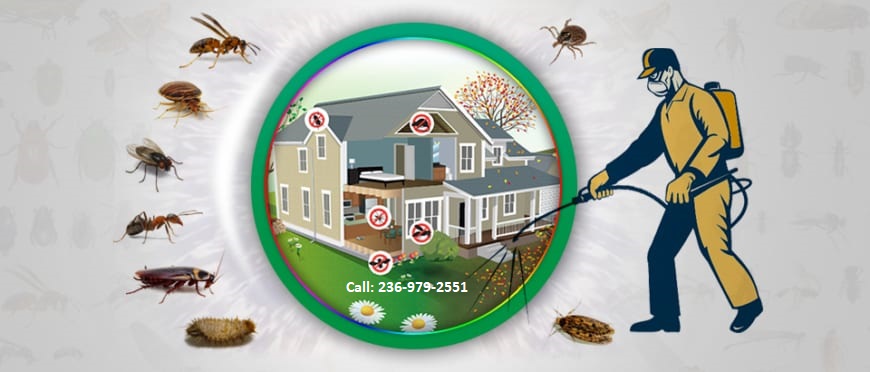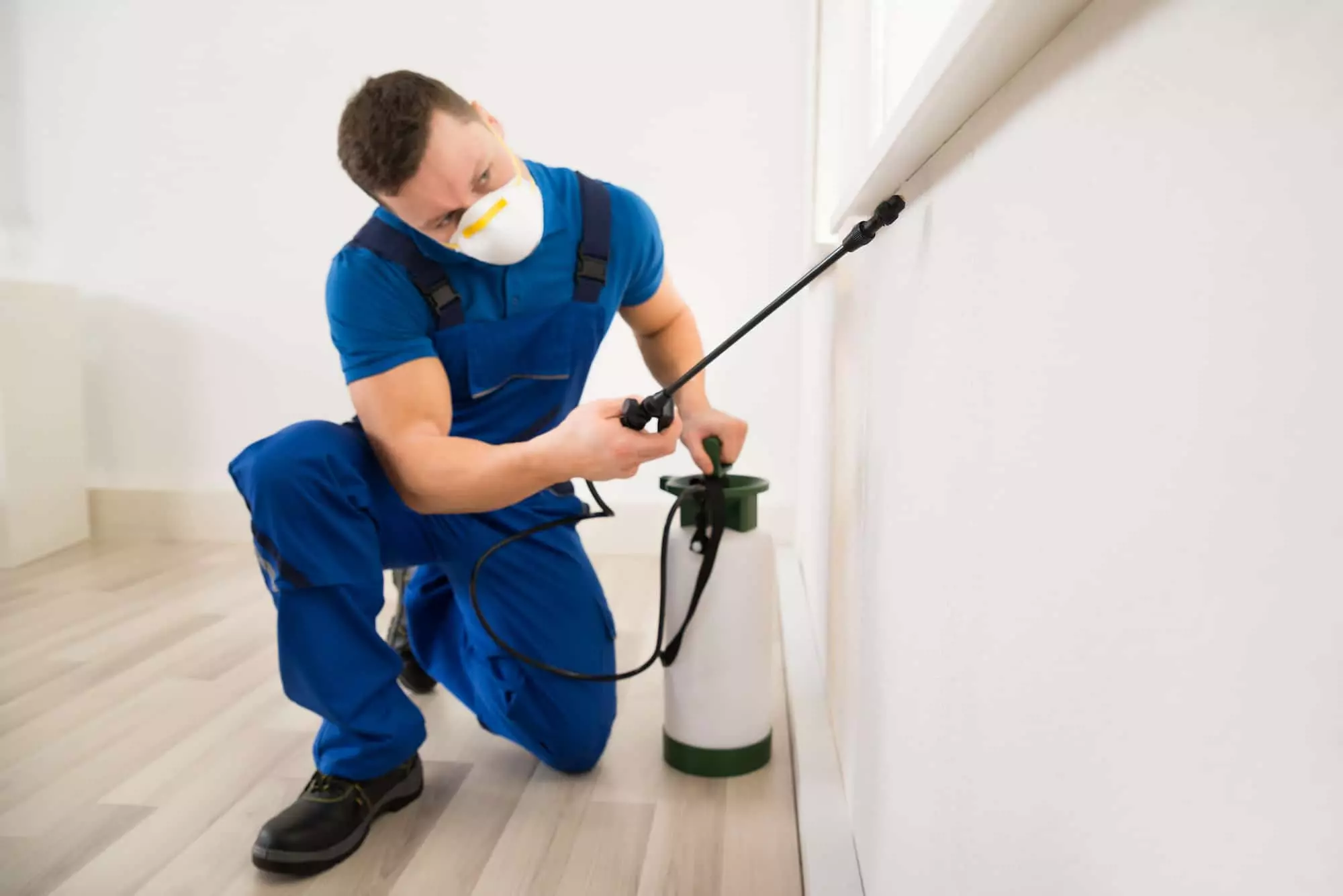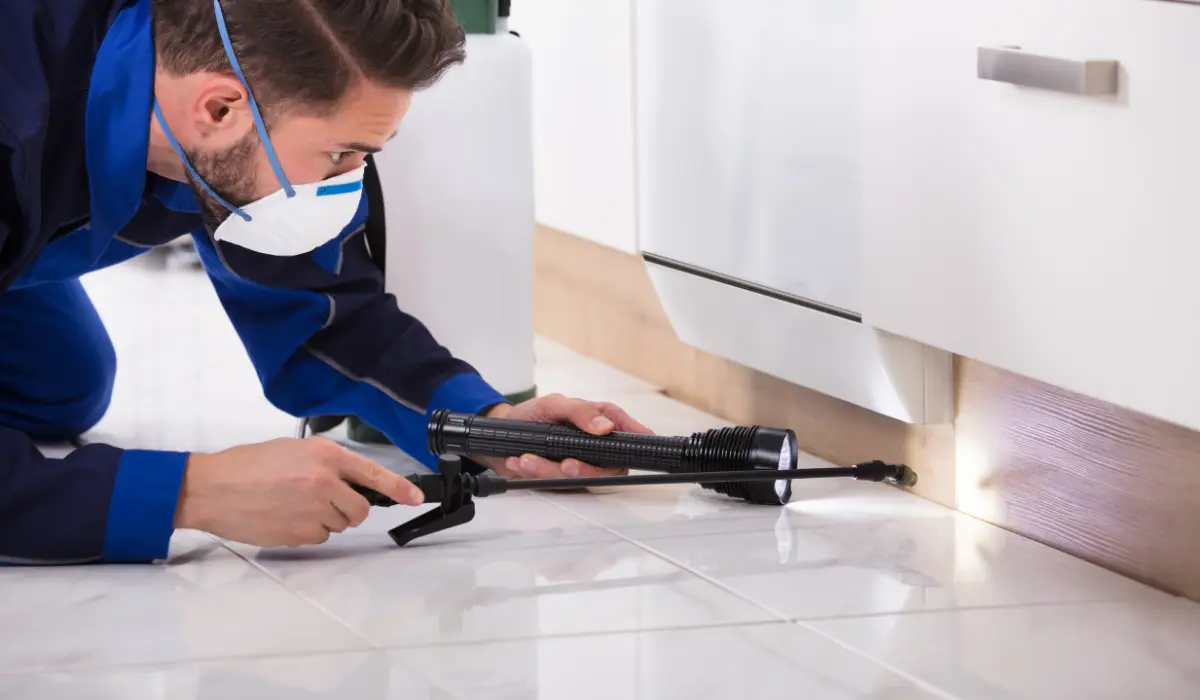Professional Wasp Control Coquitlam: Safe and Efficient Pest Removal
Professional Wasp Control Coquitlam: Safe and Efficient Pest Removal
Blog Article
Safe and Trusted Bug Control for Lasting Defense
Reliable insect management needs a multifaceted technique that balances ecological honesty with the requirement for reliable parasite suppression. The nuances of these methods might not be quickly clear, prompting a better examination of the techniques that can lead to lasting parasite control end results.
Comprehending Parasite Control Techniques
Insect control encompasses a selection of techniques aimed at handling and removing unwanted bugs and rats that can endanger both health and building. Recognizing these methods is crucial for reliable insect monitoring.
The main categories of bug control methods consist of mechanical, biological, and chemical strategies. Mechanical techniques involve physical obstacles and catches to stop bug entry and capture undesirable types. Utilizing screens on home windows or employing sticky traps can substantially reduce bug populations without introducing unsafe substances - exterminator coquitlam.

Chemical pest control is usually the most recognized method, using chemicals to eliminate insects. These chemicals can be efficient yet should be utilized with caution to prevent unfavorable impacts on non-target types and the atmosphere.
Benefits of Eco-Friendly Solutions
How can environment-friendly options transform insect control methods? The fostering of green parasite control approaches uses many benefits, dramatically enhancing the performance and safety and security of bug administration (exterminator coquitlam). First of all, these solutions utilize natural ingredients, lowering the dependence on dangerous chemicals that can pose threats to human health and the environment. This shift not just safeguards families and pets yet likewise reduces the potential for soil and water contamination.

An additional advantage is the favorable influence on neighborhood biodiversity. Environmentally friendly options are created to target specific insects while maintaining helpful pests and wild animals, promoting a well balanced ecological community. This method lines up with the growing consumer demand for lasting methods, boosting the online reputation of insect control service providers.
Integrated Parasite Management Techniques
The application of environmentally friendly options naturally brings about the adoption of Integrated Parasite Management (IPM) methods, which further boost parasite control effectiveness. IPM is an alternative strategy that integrates several strategies to handle pest populations while reducing environmental impact. This approach stresses using organic, cultural, mechanical, and chemical controls, making sure a sustainable and balanced method of parasite administration.
One fundamental facet of IPM is the thorough analysis of bug activity and environmental problems. By keeping an eye on pest populations and determining their life cycles, professionals can execute targeted treatments that interrupt the pest's environment or lifecycle, reducing dependence on chemical pesticides. Additionally, cultural techniques such as crop rotation and habitat adjustment can significantly reduce bug establishment and reproduction.
Another critical element is using organic control agents, such as advantageous insects or bacteria, which can normally subdue insect populaces. When chemical applications are needed, IPM focuses on making use of low-risk pesticides and applies them precisely, reducing exposure to non-target microorganisms and human beings.
Including IPM methods not only improves insect control performance yet likewise promotes a much safer ecological community, lining up with the growing need for sustainable methods in insect administration.
Safe Practices for Property Owners
Understanding the importance of secure practices in insect control can encourage home owners to successfully manage parasite problems while guarding their health and wellness and the setting. Applying non-toxic approaches and precautionary actions is crucial in decreasing exposure to dangerous chemicals.
Home owners must first examine their environment for conditions that bring in insects, such as standing water, food, and mess waste. Frequently cleansing and securing access points can hinder pests from getting into the home. Using all-natural deterrents, such as important oils or diatomaceous planet, Read Full Article can give reliable choices to chemical pesticides.
When chemical treatments are required, home owners should go with items that are specifically classified as risk-free for residential usage. It is necessary to comply with application standards meticulously to avoid too much exposure. Additionally, making use of targeted treatments in areas where bugs are recognized, as opposed to blanket splashing, can significantly lower chemical usage.
Finally, preserving open communication with insect control specialists is crucial. House owners ought to make inquiries regarding the safety of items used and demand eco-friendly alternatives whenever feasible. By embracing these secure methods, homeowners can develop a much healthier living atmosphere while efficiently taking care of bug problems.

Tips for Long-Term Protection
Developing a parasite monitoring strategy that highlights lasting protection can greatly enhance the effectiveness of the risk-free techniques previously discussed. To achieve this, home owners should carry out routine assessments of their building, concentrating on hidden locations such as attic rooms, basements, and crawl spaces. Early discovery of bug activity is important in avoiding problems from holding.
These practices minimize attractants that draw pests into the home. Sealing entry points, such as fractures around home windows and doors, can properly obstruct possible pest accessibility.
Landscape design should also be considered; keeping plants cut and keeping a range between greenery and the home minimizes concealing places for bugs. Utilizing natural deterrents, such as important oils or diatomaceous planet, can even more discourage infestations without turning to harsh chemicals.
Lastly, teaming up with an expert parasite control solution for routine evaluations can offer an extra layer of security. These specialists can use tailored referrals and advanced treatments, making certain that your home remains shielded versus pests in the long term.
Conclusion
Finally, risk-free and dependable bug control needs a diverse technique that emphasizes environmentally friendly methods and incorporated insect monitoring. By carrying out natural deterrents, conducting normal assessments, and maintaining proper hygiene, homeowner can dramatically lower insect populaces while shielding advantageous bugs and the environment. Partnership with expert parasite control solutions enhances the performance of these methods, making sure tailored remedies that offer enduring security and satisfaction versus future problems.
Efficient insect Going Here administration needs home a multifaceted approach that balances eco-friendly integrity with the need for efficient parasite reductions. The fostering of green bug control methods offers many advantages, substantially improving the effectiveness and security of insect monitoring.The application of eco-friendly services naturally leads to the fostering of Integrated Bug Monitoring (IPM) methods, which further improve pest control efficacy. exterminator coquitlam. By keeping track of insect populaces and recognizing their life cycles, experts can execute targeted interventions that disrupt the pest's environment or lifecycle, lowering dependence on chemical pesticides.In final thought, trusted and risk-free parasite control requires a multifaceted strategy that emphasizes eco-friendly techniques and incorporated bug monitoring
Report this page